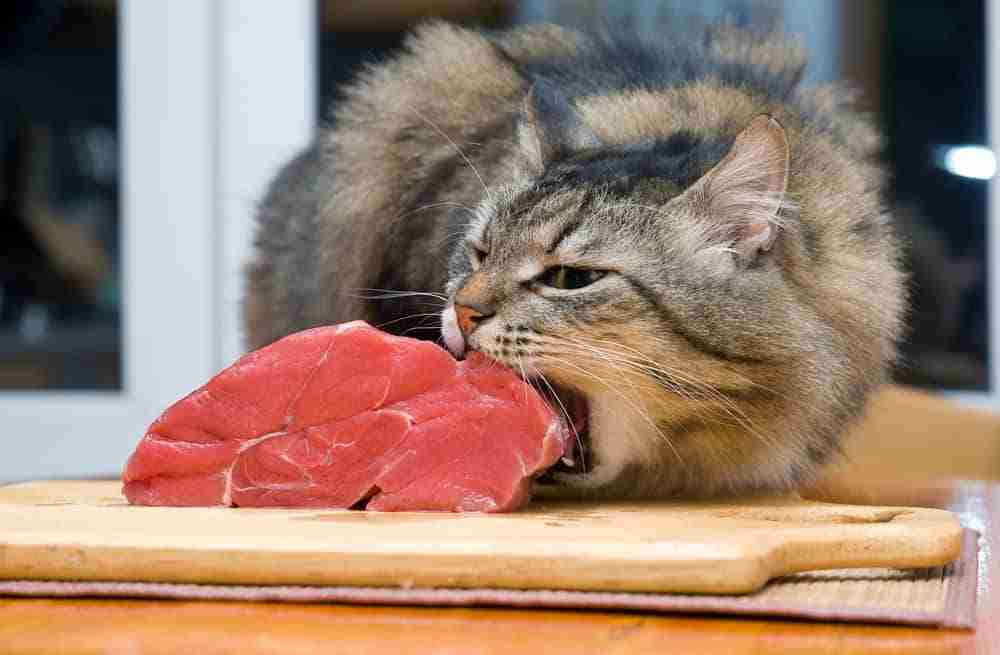Your cat doesn’t chew food and now you are concerned? It does not matter whether it is dry or wet food, cats are not meant to chew so don’t worry there is nothing wrong with your cat!
Maybe you have heard your cat crunching down on dry food and are sure they chew? What you have heard is you cat shearing through the odd piece of dry food before eating the pieces whole – and they don’t crunch through every piece unless there is an issue with kibble size!
Read on to learn about how cats eat, and in particular how they don’t chew and the why’s and wherefores. Then we will look at some individual questions and put them to bed.
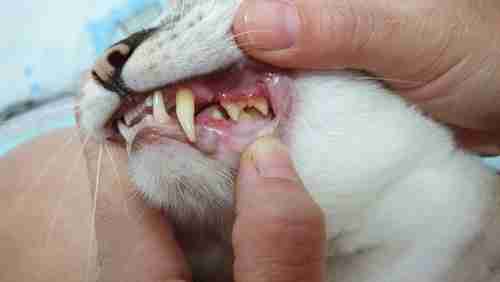
Are Cats Meant To Chew Food?
Cats are not meant to chew their food! There, we said it! But how do we know that chewing is irrelevant to your cat? By the teeth in your cat’s mouth.
Have you heard of incisors, canines, premolars, and molars? We have all got them and so has your cat. It is just that they are shaped differently in a cat’s mouth to reflect how your cat might use them given their natural diet.
Humans have flat molars that are for grinding cereal, seeds, and other vegetable foods. We have undersized canines as we don’t really need fangs to kill and we have relatively large incisors for cutting a bite out. Our molars are numerous and flat enough to grind vegetables to a manageable slop before swallowing.
Cats are obligate carnivores. They get everything they need in their diet from meat. They have teeth to help them catch and consume meat.
They have small incisors at the front of the mouth to grip prey but their canines are huge fangs designed for gripping, killing, and tearing. Their molars are sharp rather than flat and allow for tearing flesh with some bone grinding properties.
Basically, none of their teeth are constructed to chew. They are designed to rip, puncture, tear, slice and crunch. This is why your cat doesn’t chew but occasionally crunches that bit of dry kibble!
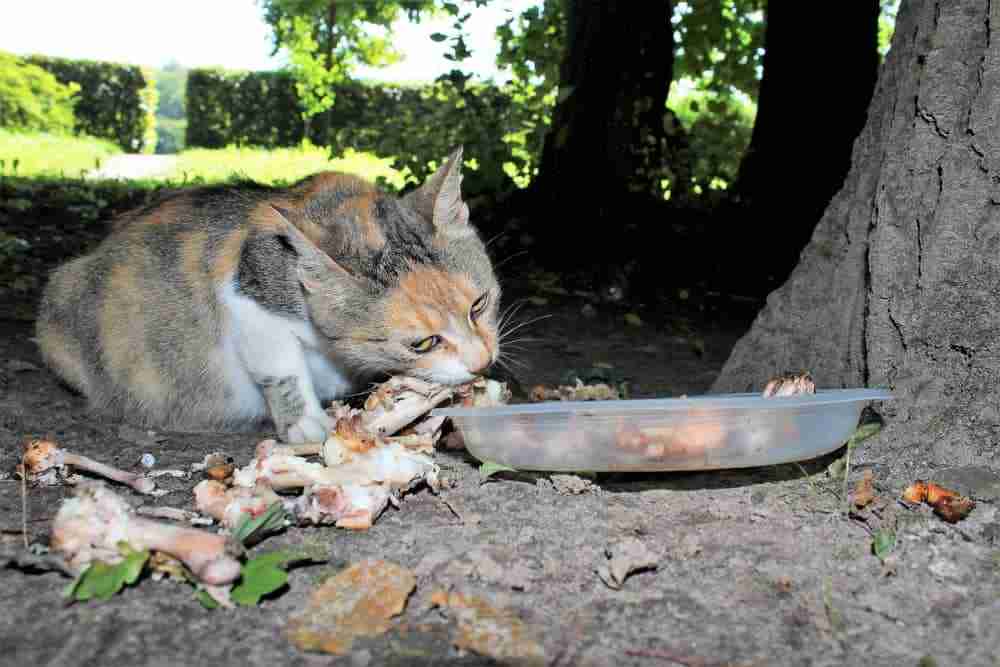
What About Dry Food
But what about dry cat food? Surely they don’t swallow it whole? And I am sure my cat chewed or did before they stopped!
Here is the thing. Cats don’t chew dry food either. They swallow the kibble whole. In fact, food manufacturers go to great pains to ensure the size of the kibble is correct given that cats don’t chew! In some cases, your cat might, each third or fourth piece go for a crunch and shatter a piece of kibble. This may be through habit or instinct or they may just sense from the position of the kibble in the mouth that it needs breaking down to swallow comfortably.
They simply don’t have any digestive benefit to chewing the kibble before swallowing – so they don’t. So if your cat used to crunch kibble but doesn’t now it is either because they have lost some teeth at the back of their mouth or the kibble is slightly smaller than before and they don’t feel the need to crunch it down to size.
So If My Cat Has Lost Teeth It Is No Big Deal?
It may be tempting if your cat has had teeth removed from either dental disease, an accident, or has lost teeth with old age to move them from a dry to wet diet. But this is totally unnecessary. Your cat eating a dry food diet will be able to continue eating a dry food diet even with no teeth!
Losing teeth becomes a problem for cats when they are wild or stray because a large part of the purpose of the teeth is to catch and kill. As cat guardians who feed their domestic cats, we have taken a large part of the use of the teeth out of the equation. So a cat with no teeth should not have a problem eating and surviving no matter what type of diet they are on!
If your cat loses teeth and then stops eating this is not because they can’t eat without teeth it is because their mouth is giving them pain from tooth damage, gum damage, or the like. They need to see a vet and clear up an infection or have dental work done so their mouth is comfortable and then regardless of how many teeth they have they will eat on!
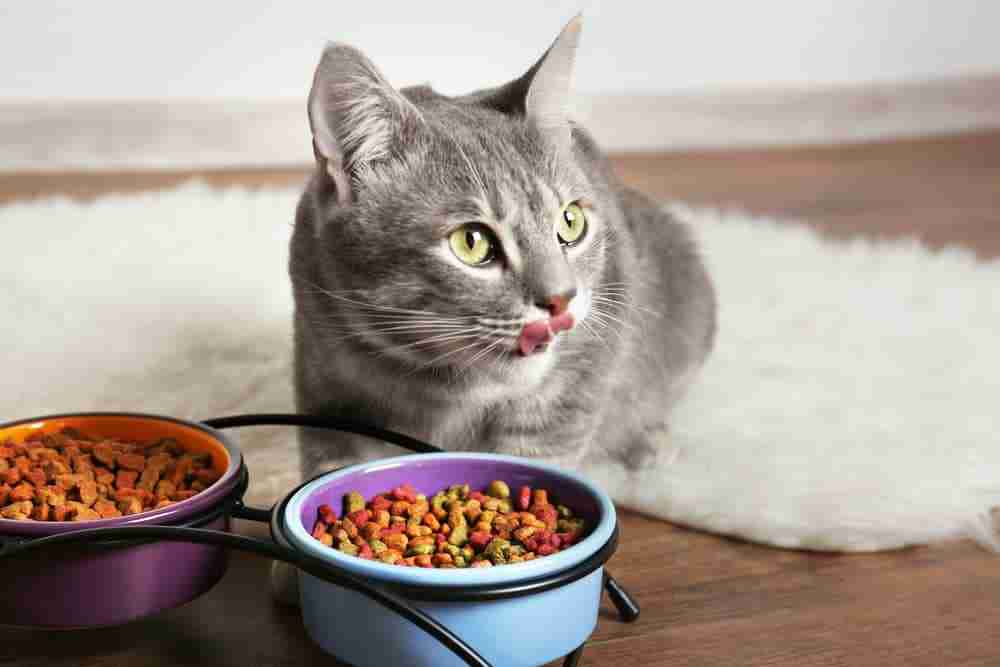
Is It Bad If Cats Don’t Chew
So if my cat is licking food not chewing there is nothing to worry about? And it isn’t bad? Yes, correct. But why then does my cat vomit large, uneaten lumps of kibble?
That is more likely due to overeating and eating too fast rather than a lack of chewing. If you free-feed your cat you might find that they eat more from boredom. But cats also have some instincts for eating fast and too much in one sitting.
If you have a multi-cat home or a home with a dog in it your cat may wolf down food to ensure their fair share. This might be regurgitated later in whole pieces. This isn’t because they haven’t chewed properly but because they have eaten too much in one sitting.
If speed-eating or overeating is at play consider a slow feed cat bowl and stopping free feeding and feeding your cat at set intervals instead.
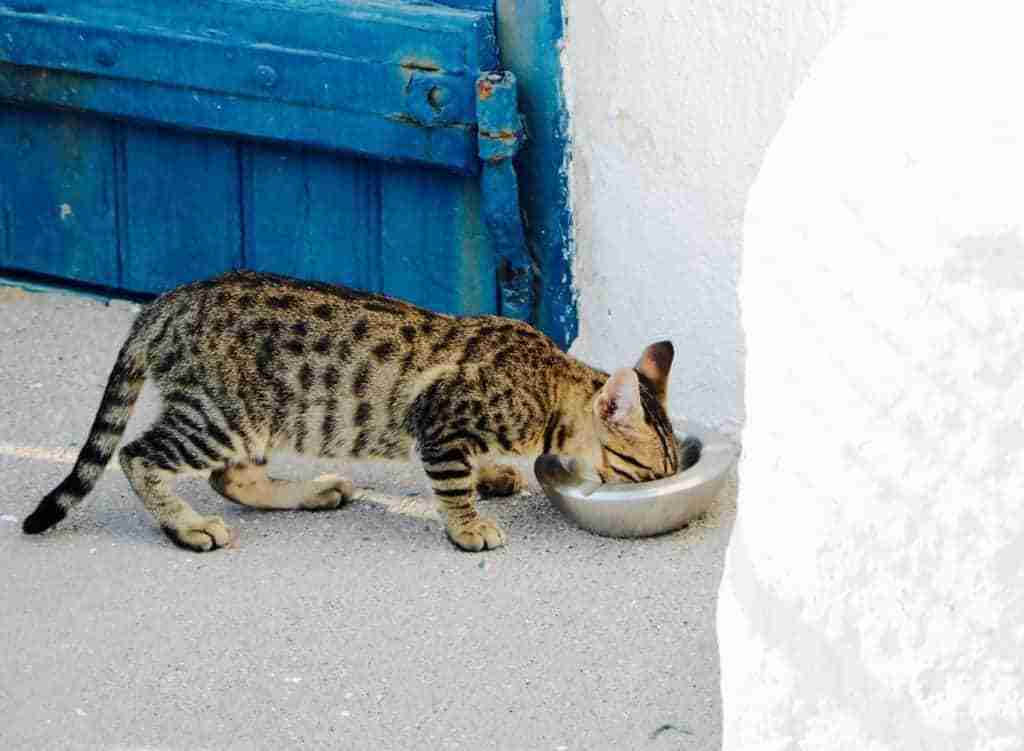
What About Dry Food That Cleans Teeth
There is some conjecture that dry food is good for cat’s teeth because it helps with their dental health. It is believed that chewing breaks off plaque from the teeth.
These studies have not actually identified the reason why a dry food diet is better for a cat’s dental health, which it is, but they do identify that chewing action is not the mechanism at play.
It is thought that dry food stimulates saliva production and it is the saliva that improves the cat’s dental health.
Does The Size Of Cat Kibble Matter?
The size of the kibble does matter to your cat. Too big and your cat simply can’t handle it. Cat kibble is always smaller than doggie kibble because of this factor and adult cat kibble should not be fed to kittens for the same reason!
If your cat gets a piece of kibble that is the wrong size or shape they will probably try to crunch it down to size!
Final Thoughts
If your cat doesn’t chew food it is not a big problem. In fact, it is normal. Even with dry food. A domestic cat can survive perfectly well on a wet or dry diet without teeth and without chewing. This is because teeth are there to rip, tear and crunch in a cat and if you are feeding wet food they simply have no need. With dry food, the kibble should be such a size they can simply hoover it down!
